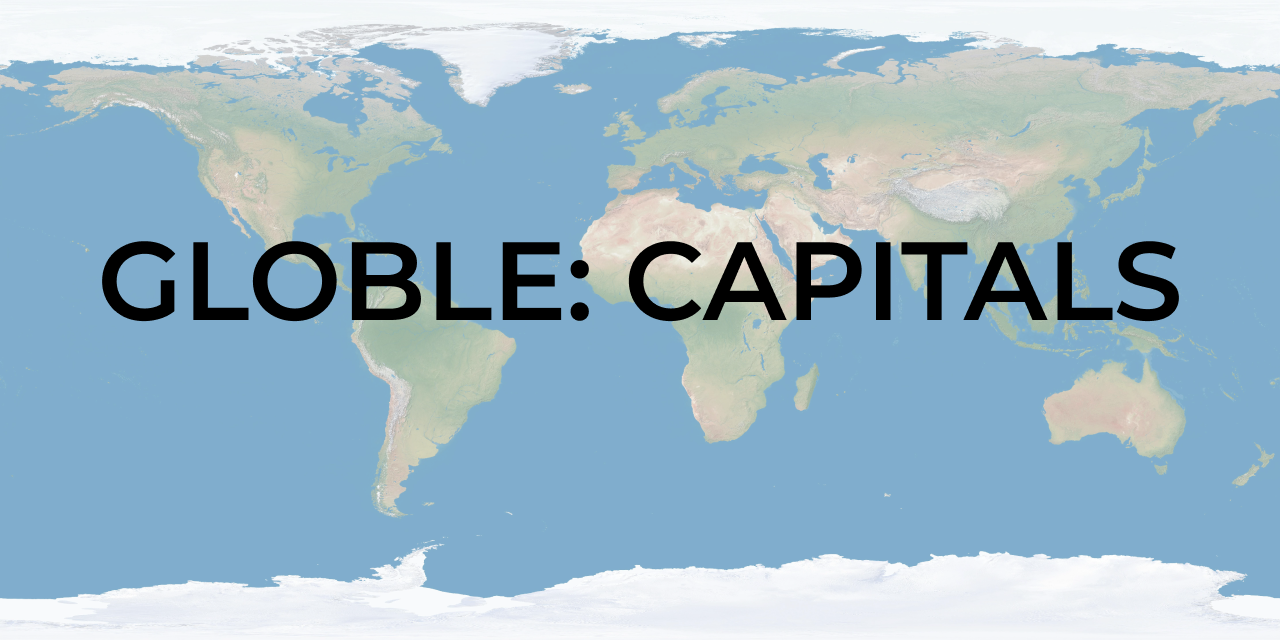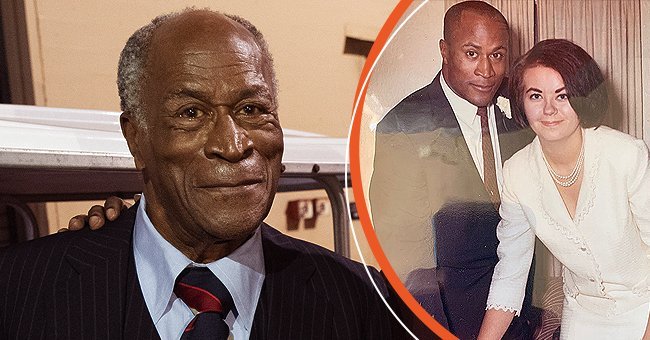Globle Capitals Answer Globle Capitals is a geography-based puzzle game that challenges players to guess the capital city of a country each day. Unlike traditional trivia games, Globle Capitals incorporates a unique color-gradient system to give players hints based on the proximity of their guesses to the correct answer. This engaging mechanic makes it more interactive and educational than a simple quiz.
The game is a spin-off of the popular game Globle, which initially required users to guess the name of a country rather than its capital. As interest in geography-based brainteasers grew, the developers saw an opportunity to add a new layer of complexity by shifting focus to capital cities. This twist not only challenges general knowledge but also enhances spatial and political awareness.
Part of the game’s success stems from its simplicity and universal appeal. No account or download is required; it’s playable on any modern web browser. The blend of intuitive gameplay and geographical education has made it a daily habit for geography enthusiasts, students, and curious minds across the globe.
Gameplay 101: Mechanics & User Interface
The core mechanic of Globle Capitals is simple: players enter the name of a capital city, and the game provides feedback using a heat map. The closer your guess is to the correct capital, the warmer the color. Red indicates high proximity, while pale yellow shows you’re far off. This unique visual feedback helps narrow down the correct answer without giving it away directly.
Each day, the game features a new capital to guess, and it resets at midnight UTC. Users can play once a day, which keeps engagement high and players returning regularly. The minimalistic interface is clean and user-friendly, featuring a globe where guesses are plotted and shaded according to distance.
The game also tracks your streaks, number of guesses, and win statistics. Players can share their daily results via emojis and colored blocks, similar to Wordle. This social sharing feature has boosted the game’s popularity on platforms like X (formerly Twitter), Reddit, and TikTok.
The Geography Behind the Challenge
What makes Globle Capitals especially engaging is its emphasis on actual geographic knowledge. While many players might know that Paris is the capital of France, fewer may recall that Bujumbura was replaced by Gitega as Burundi’s official capital. These real-world updates make the game a living educational tool.
A frequent challenge is distinguishing between capital cities and the largest cities. For instance, many mistakenly guess Sydney instead of Canberra, or confuse Zurich with Bern. These mistakes highlight the importance of understanding political versus economic centers.
Additionally, geopolitical shifts can throw players off. Countries like Kazakhstan moving their capital from Almaty to Astana (now called Nur-Sultan, and back again) showcase how dynamic this subject can be. Staying updated with global politics enhances your ability to play the game effectively.
First-Guess Strategies That Set the Tone
One of the most effective ways to begin a round of Globle Capitals is by selecting high-coverage capital cities. Cities like Cairo, Ankara, or Nairobi are strategically placed to cover large portions of Africa and Eurasia, offering immediate feedback that helps refine future guesses.
Another proven tactic involves hemisphere-based strategies. By guessing cities like Buenos Aires in the southern hemisphere or Oslo in the northern, players can quickly narrow down the general location of the hidden capital. This directional clue can drastically improve guess efficiency.
Some players also leverage linguistic patterns in country names. For instance, if your guess of “Hanoi” yields a red result, you may consider capitals of neighboring Southeast Asian countries like Vientiane or Phnom Penh. Understanding regional language roots can give subtle hints toward the correct answer.
Mid-Game Diagnostics: Reading the Heat Map
The heat map is the heartbeat of Globle Capitals. As you input guesses, the globe becomes shaded with color-coded gradients, offering clues about how near or far your guess is from the correct answer. Warmer colors suggest proximity, while cooler tones indicate a need to rethink your region.
Players often employ triangulation techniques to refine their guesses. If your guesses of Cairo and Tehran both yield warm colors, it’s logical to deduce that the correct capital lies somewhere in between. This spatial deduction process mimics real-world problem-solving.
One common mistake is misreading slightly warm colors as “close enough.” Players might continue guessing within the same region rather than shifting continents. Understanding how distance is interpreted in the game is essential to making smarter, not just faster, guesses.
Advanced Techniques for Consistent Wins
Veteran players often go beyond casual guessing by developing spreadsheets of world capitals and countries. This organized approach helps them visualize geographic clusters and commit them to memory over time. Using filters to sort capitals by continent can be particularly effective.
Memorizing regional clusters is another efficient strategy. For example, learning all the capitals of Central Asia (like Dushanbe, Bishkek, and Tashkent) can be extremely helpful, as these countries are frequently overlooked but centrally located.
Finally, the debate between speed-running and thoughtful play is ongoing. Speedrunners aim to guess the capital in as few attempts as possible, while thoughtful players analyze each guess meticulously. Both styles have merits, and choosing one depends on your personal goals and learning style.
Tech Helpers & Study Tools
Many players turn to digital tools to sharpen their capital city knowledge. Flashcard apps like Anki offer customizable decks that reinforce memory through spaced repetition. Using these apps daily can drastically improve your game performance.
Printable blank maps are another powerful tool. By repeatedly filling in countries and their capitals, players reinforce spatial memory. Some even gamify this offline practice by timing themselves or competing with friends.
GIS (Geographic Information Systems) platforms can also be used to study precise locations and distances between cities. These tools allow players to visualize global relationships beyond the flat-map perspective provided by the game.
Today’s Globle Capitals Answer Section
Many sites and forums now provide the daily answer for those stuck or curious. However, most of these include spoiler warnings to preserve the game’s integrity. Always approach this section with caution to avoid undermining your learning experience.
Typically, these walkthroughs begin with regional hints, followed by increasingly specific clues. This layered revelation format helps players learn instead of simply copying the answer. Sites may also include information about the capital, such as population, language, and founding date.
Including contextual facts enriches the experience. Learning that Lusaka, Zambia’s capital, is a major transport hub in Southern Africa provides depth that sticks in memory, making the game not just fun but profoundly educational.
Tracking Your Progress Over Time
Players serious about improving often track their guesses over time. Keeping a record of how many attempts each puzzle takes, the types of mistakes made, and which continents are weakest can offer valuable insight.
Basic data visualization tools like Google Sheets can turn these logs into graphs that highlight performance trends. You may discover that you’re weakest in Oceania or strongest in South America, allowing you to tailor your study focus.
Analyzing missed capitals is a smart way to identify gaps. If you repeatedly miss capitals in Central America, for instance, that signals a need to focus on that region. This reflective approach transforms the game into a personalized learning journey.
Educational Benefits for Students & Lifelong Learners
Globle Capitals is more than a game; it’s a teaching tool. Students can use it to reinforce world geography lessons, learn capital cities, and understand regional groupings. Teachers are increasingly incorporating it into social studies and geography curriculums.
For adult learners, the game is an enjoyable way to stay mentally active. Regular play improves memory, critical thinking, and pattern recognition. Unlike rote memorization, the interactive nature of the game fosters deeper learning.
Moreover, playing Globle Capitals encourages global awareness. Players become more attuned to international news, country changes, and geopolitical developments—a valuable perspective in today’s interconnected world.
Social Dimension: Sharing, Competing, Collaborating
The social sharing feature of Globle Capitals lets players post their colored globe and guess count online. This builds community, sparks conversations, and sometimes even friendly rivalries among geography buffs.
Competitive leaderboards within private groups or online forums add an extra layer of motivation. Players compare guess counts and streaks, learning from one another in the process.
Community forums also serve as collaborative spaces for sharing hints, discussing strategy, and celebrating obscure capitals. However, etiquette is important—spoiling answers without warning can ruin the experience for others.
Capital City Deep Dives (Spotlight Features)
Some dedicated players or educators use the game as a launching point for deep dives into individual capitals. These explorations can include the capital’s history, cultural significance, tourist attractions, and political influence.
For example, exploring Tbilisi, the capital of Georgia, might reveal its ancient architecture, role in Silk Road trade, and status as a cultural crossroads between Europe and Asia.
By linking gameplay to real-world knowledge, players not only memorize capitals but also develop an appreciation for each city’s unique character and contribution to global history.
Common Pitfalls & How to Avoid Them
A major pitfall is relying on outdated or incorrect information. Using a decades-old list of world capitals can lead to confusion and incorrect guesses. Always verify sources with up-to-date geographic databases or reputable websites.
Many players overlook microstates and small island nations. Capitals like Funafuti (Tuvalu) or Majuro (Marshall Islands) are easy to forget but are fair game in the puzzle.
Color confusion is another common error. Subtle shade differences on the heat map can lead players to wrongly interpret distance, so it’s essential to double-check color meaning or activate accessibility features if needed.
Accessibility & Inclusivity Considerations
Globle Capitals offers color-blind modes that use patterns and gradients instead of standard color schemes, ensuring players with visual impairments can fully participate. This thoughtful inclusion enhances the game’s educational reach.
Mobile and desktop versions offer nearly identical functionality, allowing players to enjoy the game wherever they are. This flexibility makes it ideal for students, commuters, and casual gamers alike.
Efforts are underway to localize the game into multiple languages, making it accessible to non-English speakers. This not only broadens its global appeal but also aligns with the game’s international spirit.
Variants & Spin-Offs Worth Exploring
Inspired by the success of Globle Capitals, developers have released variants like Globle Flags and Globle Landmarks. These spin-offs challenge players to identify countries by their flags or famous landmarks.
While similar in format, each variant has a unique challenge curve. Capitals require political knowledge, while landmarks test cultural and historical awareness.
Future updates may include multiplayer modes or regional-specific editions, expanding the game’s potential even further. The versatility of the format ensures its continued evolution and engagement.
Ethical Gaming: Avoiding Cheating Temptations
With the rise of daily answer sites, it’s tempting to look up the answer rather than solve it independently. However, doing so undercuts the game’s educational value and personal growth.
It’s important to distinguish between hints and outright spoilers. Seeking guidance on which region to explore is different from copying the answer. Maintaining integrity preserves the spirit of the game.
Many forums have clear spoiler etiquette: use hidden text, tag posts appropriately, and avoid revealing answers in public threads. Respecting these norms ensures a positive experience for all players.
A Day in the Life of a Globle Champion
High-performing players often follow a routine: they start with a set of benchmark guesses, analyze color feedback carefully, and keep reference materials on hand. These habits form the foundation of long winning streaks.
A 100-day streak holder might spend just five minutes daily on the game, but they invest significantly more time in learning and review. This demonstrates that mastery comes from consistency, not speed.
Motivation also plays a key role. Celebrating small victories, joining online groups, and staying curious about the world keeps players engaged and enthusiastic over time.
Integrating Globle Capitals into Family Game Night
Globle Capitals can be a fun and educational addition to family activities. By adjusting the rules slightly, such as offering hints or allowing collaborative play, younger players can enjoy the game too.
Families can compete or team up to guess the capital together, fostering cooperation and communication. These sessions often lead to discussions about world events and cultural differences.
Introducing children to global geography in a gamified way cultivates curiosity and builds foundational knowledge that serves them well in school and beyond.
The Future of Geography Puzzles
The success of Globle Capitals suggests a bright future for educational puzzles. Developers are exploring AI-generated challenges that adapt to individual player strengths and weaknesses.
Virtual reality versions could one day allow players to walk through digital representations of cities as they guess their names, combining gaming with immersive learning.
There is also potential for integrating sustainability themes, where players learn about climate-affected regions or biodiversity hotspots while solving puzzles.
Troubleshooting & Support
Globle Capitals Answer If technical issues arise, most problems can be resolved by clearing the browser cache or refreshing the page. Persistent errors should be reported via the game’s contact form or social media channels.
Frequent bugs include misaligned guess markers, slow loading times, or streak resets. Players are advised to keep screenshots of their results to report any discrepancies.
Support forums and community threads are invaluable resources for finding quick fixes or sharing workarounds. The community’s collective knowledge is often just as helpful as official support.
Roundup of Essential Resources
For those serious about mastering the game, investing time in atlases, geography books, and educational YouTube channels can be beneficial. Titles like “Lonely Planet’s Ultimate Travel Quiz Book” provide fun, relevant trivia.
YouTube channels such as Geography Now or WonderWhy offer engaging overviews of countries and their capitals. Their bite-sized lessons complement game practice perfectly.
Podcasts like “The Map Corner” or free online courses on platforms like Coursera and edX further deepen geographic knowledge, bridging the gap between entertainment and education.
Conclusion: From Casual Player to Capital Connoisseur
Globle Capitals is more than a daily brain teaser. It’s a powerful educational tool that sharpens memory, deepens geographic awareness, and promotes cultural understanding. From the casual player to the global scholar, everyone can benefit from its unique gameplay.
As you continue playing, remember that each guess is a step toward mastering our world’s political and cultural landscape. Celebrate your progress, learn from your misses, and keep striving to improve.
In a world growing ever more connected, knowing where things are—and what they represent—is not just a game. It’s a lifelong adventure.
FAQs
- What time does Globle Capitals reset each day?
- The game resets at midnight UTC daily.
- How many capital cities are accepted as answers?
- The game includes over 190 recognized capital cities from sovereign countries.
- Why is Jerusalem/ Tel Aviv (or similar disputed capital) handled the way it is?
- The game usually follows international consensus or UN recognition when deciding which capital is correct.
- Can I play previous days’ puzzles?
- Currently, no. Each day offers only one puzzle and cannot be replayed.
- Is there an official mobile app for Globle Capitals?
- No official app exists, but the game is fully responsive and playable in mobile browsers.
- How do streaks work and what breaks them?
- Streaks continue with daily wins; missing a day or losing breaks the streak.
- What’s the best first capital to guess?
- Capitals like Cairo, Madrid, or New Delhi are often suggested for broad geographic reach.
- How accurate are the distance calculations used in the color map?
- They are based on actual geographic distances and offer good directional hints.
- Are microstates like Vatican City included in the game?
- Yes, all recognized capital cities are included.
- Where can I suggest new features or report bugs?
- Most users report issues or give feedback through the official site or the game’s social media handles.
Read more: Vibriance Super C Serum at Target








